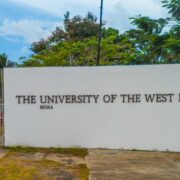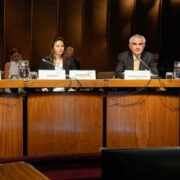FREE ARTICLE: Haiti at the tipping point of becoming fully hostage to criminals
Black Immigrant Daily News
By Sir Ronald Sanders
Haiti continues to occupy the concerns of nations around the world, especially its closest neighbouring states.
Those in charge of the Haitian Government have called for “effective support” from international partners “in the form of the immediate deployment of a specialized armed force of sufficient strength to stop, throughout the country, the humanitarian crisis that has been caused by, among other things, the breakdown in security resulting from the criminal actions of armed gangs and their sponsors”.
But others in the Haitian community insist that the Haitian authorities share the blame for the country’s rapid deterioration. They are not convinced that, even if it were possible, an intervening military force is the answer to Haiti’s deep seated and long-lasting woes.
Everyone is united in the view that more than 200 gangs now effectively control 60 per cent of the Capital, Port -au-Prince and about 80 per cent of the entire country, and that action is required to end their reign of terror. However, how to end the rule of the gangs remains an issue within Haiti and among its very large diaspora community. Some favour armed intervention by external forces but without any clear definition of the terms under which this would be accomplished. Others resist the notion of any intervention by external forces.
Among the latter is The National Human Rights Defence (RNDDH) group, which states that the “request for military intervention was produced by the de facto government (of Prime Minister, Ariel Henry) without any form of legitimacy (and) with its own objectives which seem to be to keep the PHTK (Henry’s political party) in power until the completion of the elections which they will organize with, in addition, the ability to manipulate the biometric data of citizens, that is, the electoral data”.
Prime Minister Henry has managed to garner support for a “National Consensus for an inclusive transition and transparent election”. On December 21, Henry’s government and some representatives of the private sector, other political parties and civil society organizations signed a document, committing to this transition. But participation was not fully inclusionary and key stakeholders were either omitted or omitted themselves. Therefore, while Haiti’s international partners acknowledge the benefit of the commitment and the formation of a High Council for the Transition (HCT), they are concerned that the body is not inclusionary enough to represent a national consensus. Further, the past record in Haiti of abandoning agreed positions, resulting in even wider discord, does not encourage confidence that a limited HCT will survive or that its decisions will be respected.
In a letter to the President of the United Nations Security Council (UNSC) on October 8, 2022, the UN Secretary-General, Ant?nio Guterres, recognizing that the 5 permanent members would not agree to UN military intervention in Haiti, proposed two approaches. First, “A group of Member States, acting bilaterally at the invitation of the Government of Haiti, could establish a special force to support the Haitian National Police in tackling gangs, including through joint strike, isolation and containment operations across the country”; and second, “The Security Council could welcome such a special force, the viability of which would be strengthened by the existence of broad political and social support for its deployment and a meaningful agreement between the Government and the opposition on a political way forward for Haiti”.
Neither of these proposals were pursued. No country, including the U.S. is anxious to commit forces to Haiti, outside of an agreed multi-national expedition. Further, there is still not in Haiti the kind of “broad political and social support” for the deployment of an external force. And despite the accord of December 21, 2022, and the creation of a limited HTC, there is, as yet, no “meaningful agreement between the government and the opposition on a political way forward”.
This situation in Haiti is made even more complex by the overarching power of the criminal gangs. One academic, C?sar Ni?o, an associate professor and researcher at Universidad de la Salle in Colombia, writes that “the criminal gangs managed to make alliances with the police and security, thus enabling kidnapping, human trafficking, the flow of weapons, and other crimes while minimizing the consequences”. The Haitian Human Rights Group (RNDDH) goes even further, pointing to “ongoing and repeated connections between state authorities and armed gangs”.
Added to this are the following undisputed facts. The country has no legislature and no body overseeing the government; the Supreme Court is dysfunctional (its members must be approved by the parliament which does not exist) and it has lost a third of its members.
Amid all this, the people of the country are suffering. Research shows that five million people currently experience food insecurity across the country; reported kidnappings soared to more than 1,200 last year, more than double the number in 2021, according to the U.N.; and there were 2,200 homicides in 2022, a dramatic increase over 2021.
The issue that confronts the international community in its desire to be helpful to Haiti is both the lack of meaningful, inclusionary dialogue and a genuine national consensus on the way forward within Haiti, as well as no clear terms under which external forces would be invited into Haiti and by whom; how would such a force be organized and financed; under whose authority would it function and with what mandate and immunity.
In the meantime, it should be acknowledged that the U.S. and Canada are deploying logistical assistance to the Haitian National Police. In the circumstances, it is better than doing nothing.
However, no one should lose sight of the fact that, apart from dictatorships in Haiti, two countries bear the greatest responsibility for that country’s condition – France and the U.S. Outside of an agreed multinational military intervention, they should use their considerable influence within Haiti to encourage national consensus on their path forward, including how to deal with the criminal power of the gangs.
CARICOM Heads of Government meet in their regular session in The Bahamas from February 15 to 17. Undoubtedly, Haiti will be on their agenda. They will have to consider the ways in which they can act to be helpful to the people of Haiti within the limits of their capacity.
Donate At Caribbean News Service, we do not charge for our content and we want to keep it that way. We are seeking support from individuals and organisations so we can continue our work & develop CNS further.
NewsAmericasNow.com







